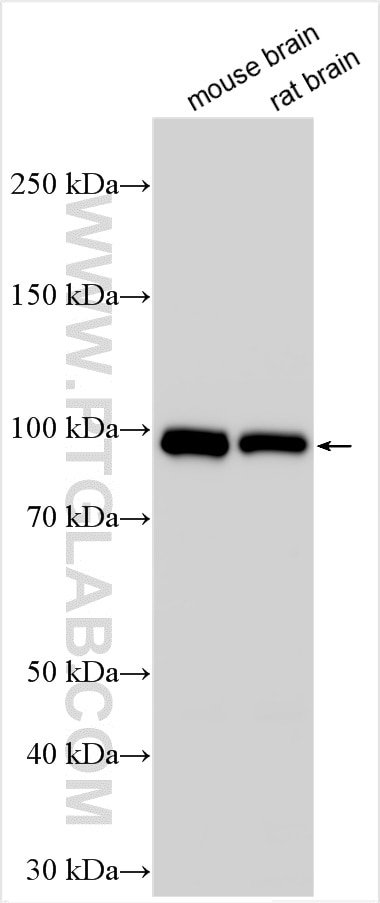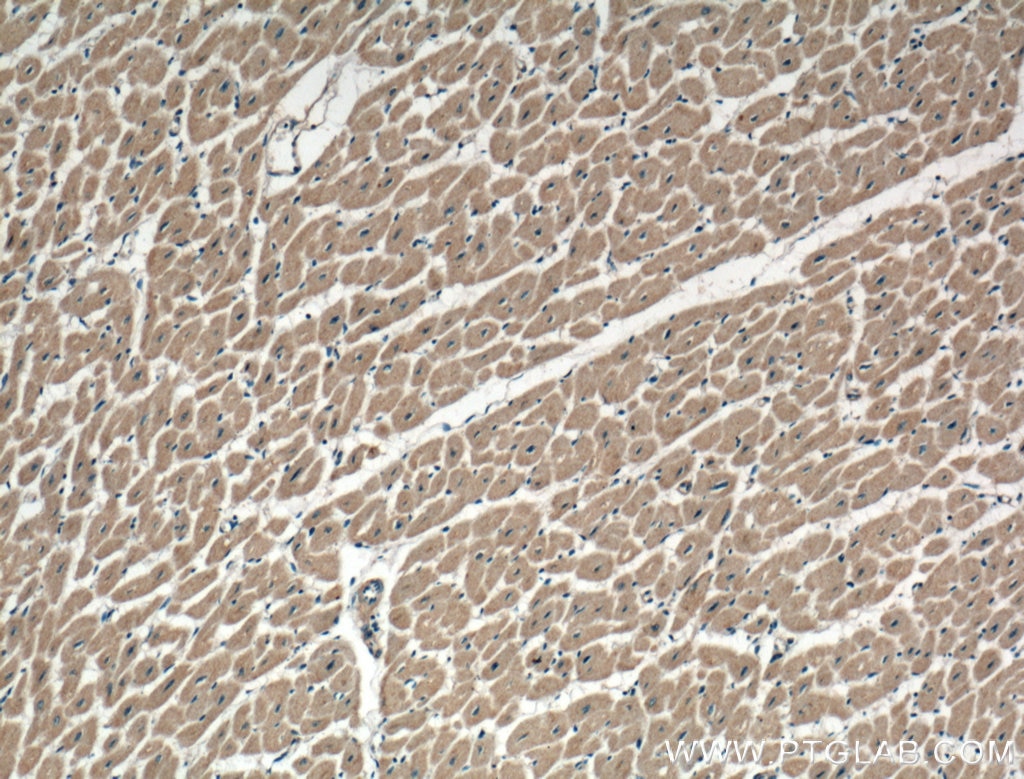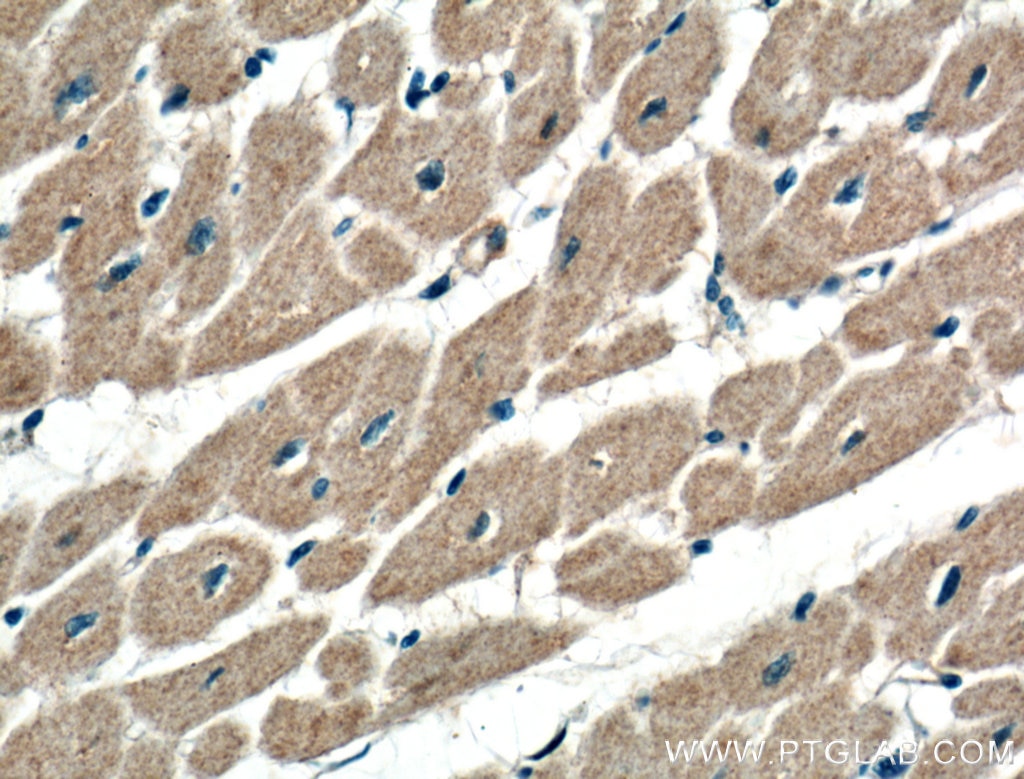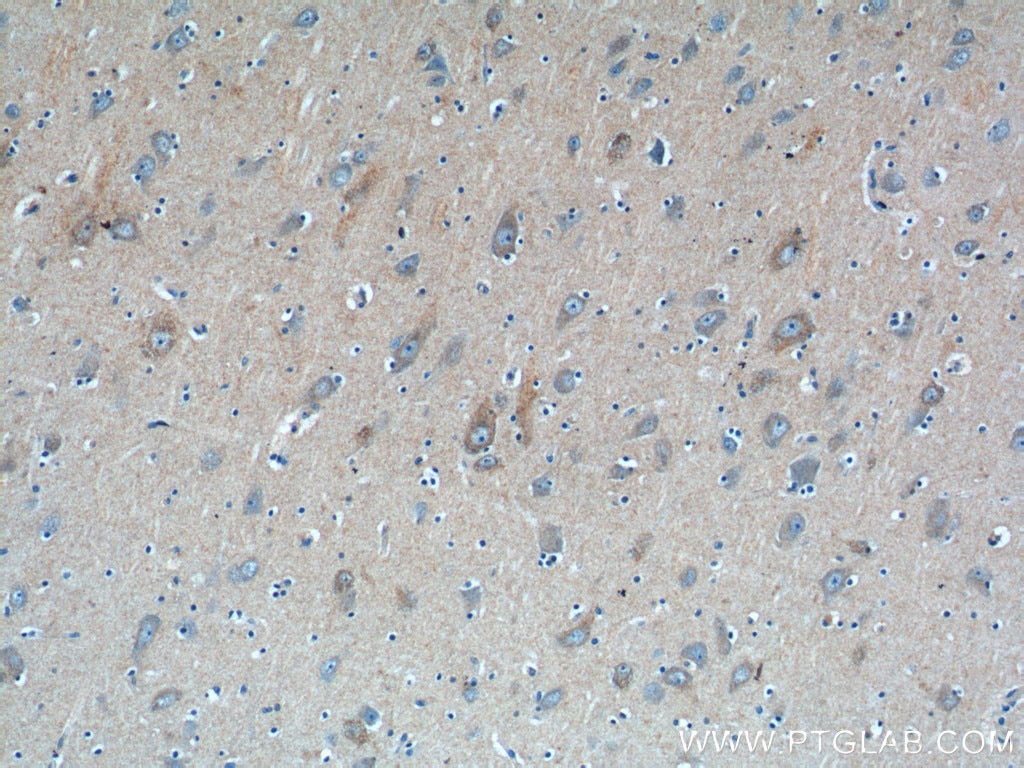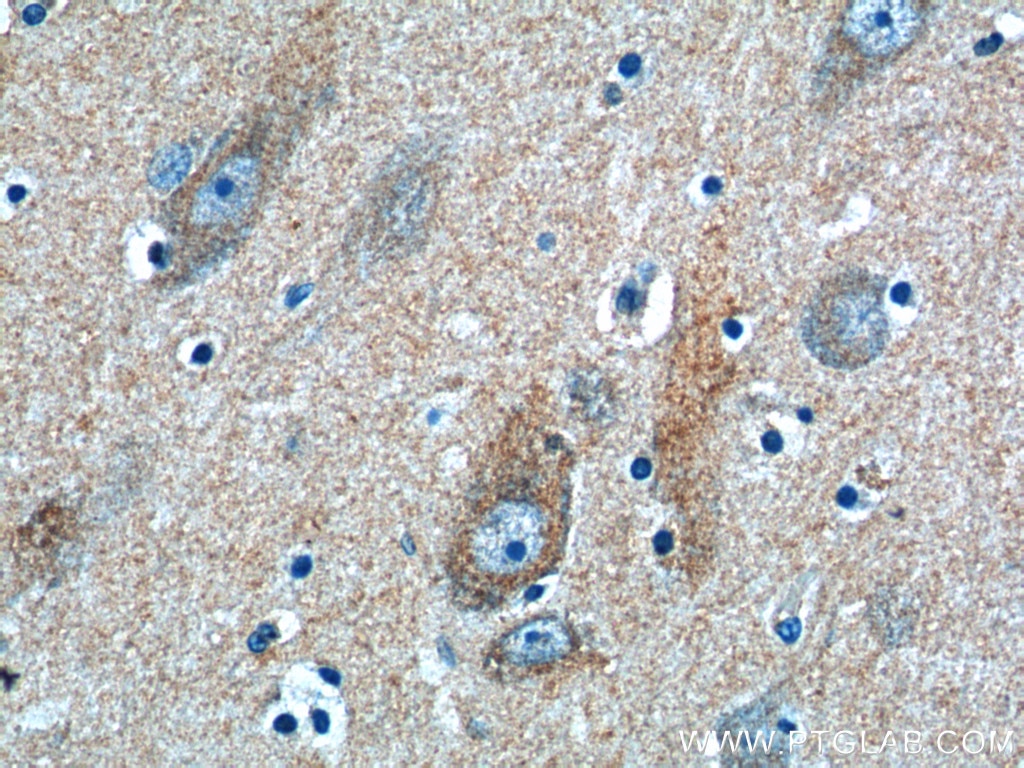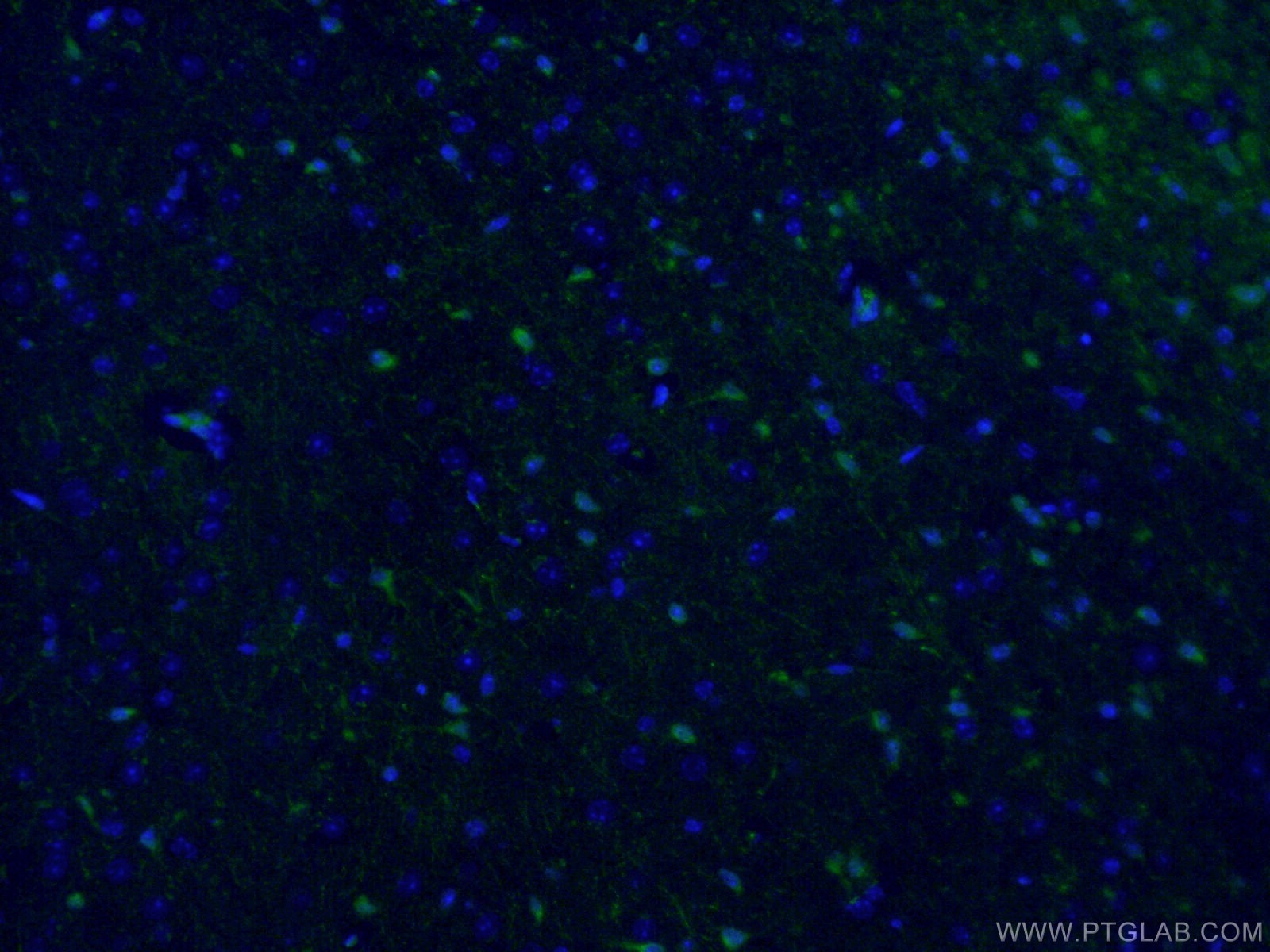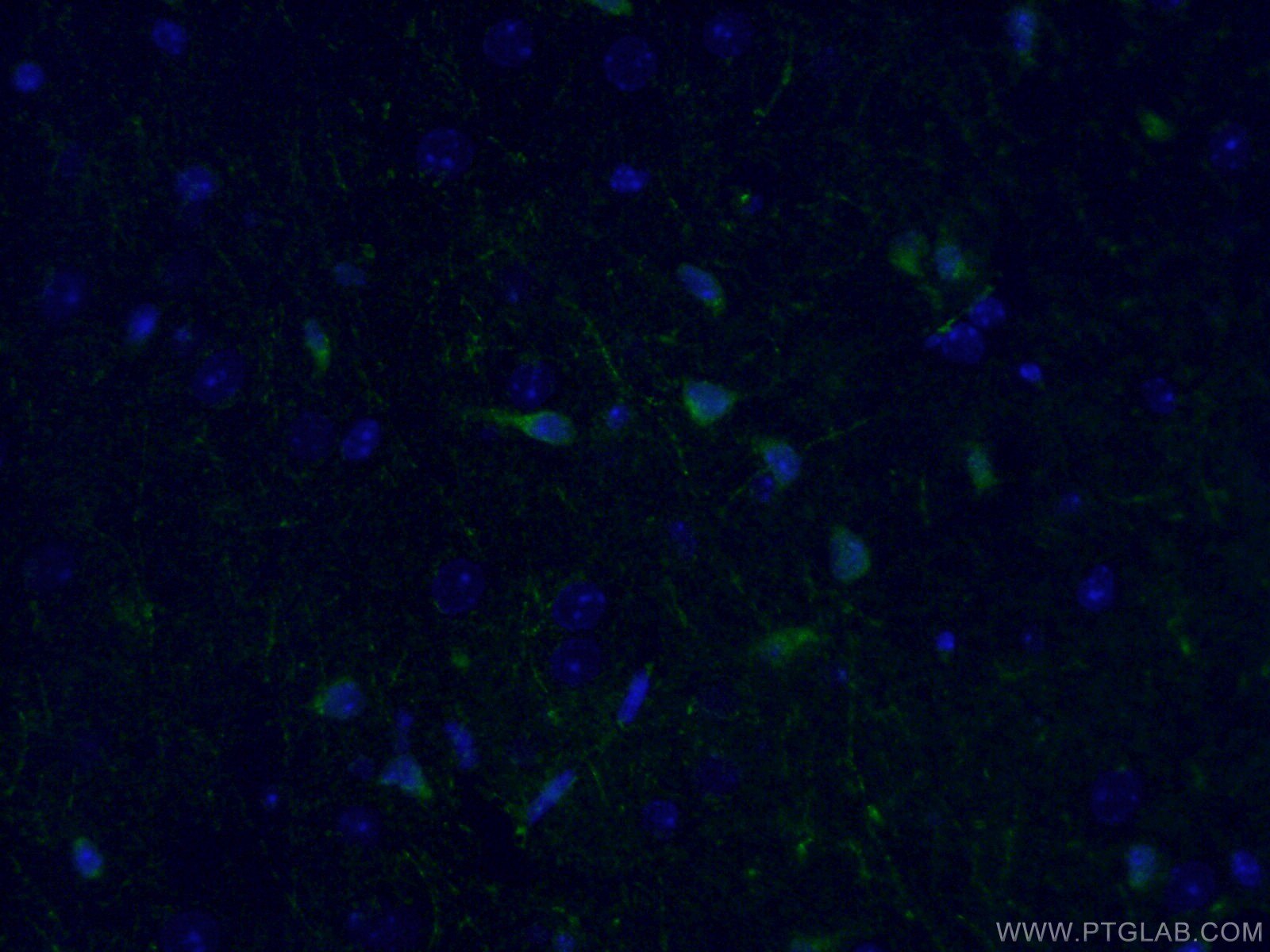ATG9A Polyklonaler Antikörper
ATG9A Polyklonal Antikörper für IF, IHC, WB, ELISA
Wirt / Isotyp
Kaninchen / IgG
Getestete Reaktivität
human, Maus, Ratte
Anwendung
WB, IHC, IF, ELISA
Konjugation
Unkonjugiert
Kat-Nr. : 26276-1-AP
Synonyme
Galerie der Validierungsdaten
Geprüfte Anwendungen
| Erfolgreiche Detektion in WB | Maushirngewebe, Rattenhirngewebe |
| Erfolgreiche Detektion in IHC | humanes Herzgewebe, humanes Hirngewebe Hinweis: Antigendemaskierung mit TE-Puffer pH 9,0 empfohlen. (*) Wahlweise kann die Antigendemaskierung auch mit Citratpuffer pH 6,0 erfolgen. |
| Erfolgreiche Detektion in IF | Maushirngewebe |
Empfohlene Verdünnung
| Anwendung | Verdünnung |
|---|---|
| Western Blot (WB) | WB : 1:500-1:2000 |
| Immunhistochemie (IHC) | IHC : 1:50-1:500 |
| Immunfluoreszenz (IF) | IF : 1:50-1:500 |
| It is recommended that this reagent should be titrated in each testing system to obtain optimal results. | |
| Sample-dependent, check data in validation data gallery | |
Veröffentlichte Anwendungen
| WB | See 5 publications below |
Produktinformation
26276-1-AP bindet in WB, IHC, IF, ELISA ATG9A und zeigt Reaktivität mit human, Maus, Ratten
| Getestete Reaktivität | human, Maus, Ratte |
| In Publikationen genannte Reaktivität | human, Maus, Ratte |
| Wirt / Isotyp | Kaninchen / IgG |
| Klonalität | Polyklonal |
| Typ | Antikörper |
| Immunogen | ATG9A fusion protein Ag24212 |
| Vollständiger Name | ATG9 autophagy related 9 homolog A (S. cerevisiae) |
| Berechnetes Molekulargewicht | 837 aa, 94 kDa |
| Beobachtetes Molekulargewicht | 94 kDa |
| GenBank-Zugangsnummer | BC065534 |
| Gene symbol | ATG9A |
| Gene ID (NCBI) | 79065 |
| Konjugation | Unkonjugiert |
| Form | Liquid |
| Reinigungsmethode | Antigen-Affinitätsreinigung |
| Lagerungspuffer | PBS mit 0.02% Natriumazid und 50% Glycerin pH 7.3. |
| Lagerungsbedingungen | Bei -20°C lagern. Nach dem Versand ein Jahr lang stabil Aliquotieren ist bei -20oC Lagerung nicht notwendig. 20ul Größen enthalten 0,1% BSA. |
Hintergrundinformationen
ATG9A is the only transmembrane ATG protein essential for autophagy. It plays a key role in the organization of the preautophagosomal structure/phagophore assembly site (PAS). It has been reported that ATG9A expression is increased in oral squamous cell carcinoma and breast cancers. The inhibition of ATG9A can lead to an inhibition of cancer cell proliferation and invasion.(PMID: 29437695, 29568063)
Protokolle
| Produktspezifische Protokolle | |
|---|---|
| WB protocol for ATG9A antibody 26276-1-AP | Protokoll herunterladen |
| IHC protocol for ATG9A antibody 26276-1-AP | Protokoll herunterladen |
| IF protocol for ATG9A antibody 26276-1-AP | Protokoll herunterladen |
| Standard-Protokolle | |
|---|---|
| Klicken Sie hier, um unsere Standardprotokolle anzuzeigen |
Publikationen
| Species | Application | Title |
|---|---|---|
Acta Pharm Sin B MicroRNA-34c-5p provokes isoprenaline-induced cardiac hypertrophy by modulating autophagy via targeting ATG4B. | ||
Front Immunol MicroRNA-34a Inhibition Alleviates Lung Injury in Cecal Ligation and Puncture Induced Septic Mice. | ||
DNA Cell Biol Long Noncoding RNA KIF9-AS1 Regulates Transforming Growth Factor-β and Autophagy Signaling to Enhance Renal Cell Carcinoma Chemoresistance via microRNA-497-5p. | ||
Mol Neurobiol RAB7A GTPase Is Involved in Mitophagosome Formation and Autophagosome-Lysosome Fusion in N2a Cells Treated with the Prion Protein Fragment 106-126 | ||
Cell Biol Int TFAM knockdown undermines SQSTM1 mRNA stability but retards autophagy flux and inhibits tumor cells proliferation under starvation conditions |
Rezensionen
The reviews below have been submitted by verified Proteintech customers who received an incentive forproviding their feedback.
FH Priya (Verified Customer) (06-21-2023) | Used this antibody for Caco2 cells andmice tissue
|
FH Priya (Verified Customer) (06-21-2023) | Used this antibody for Caco2 cells and mice tissue
|
